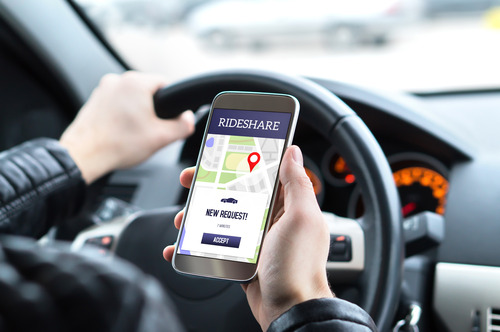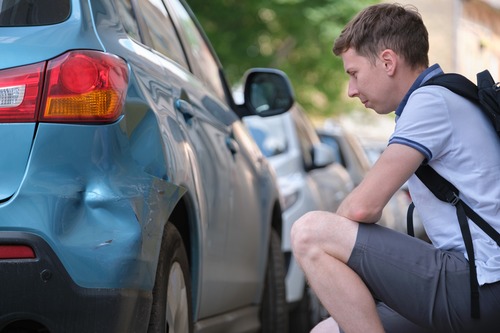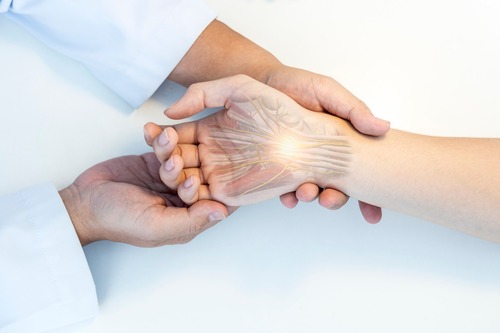Rideshare driver classification has become an issue with far-reaching implications, particularly in the context of accident claims. Unlike traditional employees, rideshare drivers for companies like Uber and Lyft operate under a structure that provides them with flexible work schedules but limits their legal protections and benefits. This distinction plays a pivotal role in determining liability and insurance coverage when accidents occur.
In this blog, we discuss the impact of rideshare driver classification on accident claims in Georgia and emphasize the importance of working with an experienced Atlanta rideshare accident attorney to navigate legal complexities and secure fair compensation.
Rideshare Driver Classification in Georgia
Rideshare driver classification as independent contractors introduces complexities that significantly impact accident claims and the determination of liability.
Overview of Independent Contractor Status for Uber and Lyft Drivers
In Georgia, House Bill 389 classifies rideshare drivers for companies like Uber and Lyft as independent contractors. This means they are not considered employees of the rideshare company. As independent contractors, drivers have more flexibility in their work schedules, but they also face significant responsibilities. They must manage their own expenses, including fuel and vehicle maintenance.
Legal Implications of This Classification on Accident Claims
The rideshare driver classification as independent contractors has important legal implications for accident claims. When an accident occurs, determining liability can become complicated. Because drivers are not employees, rideshare companies may argue they are not responsible for the driver’s actions while driving. This can affect the claims process and the amount of compensation available to accident victims.
In many cases, the rideshare company’s insurance policy may not cover accidents that occur while drivers are logged into the app but have not accepted a ride request. This gap in coverage can leave victims without sufficient compensation for medical expenses, lost wages, and other damages.
Phases of Insurance Coverage for Rideshare Drivers
Understanding the phases of insurance coverage for rideshare drivers is crucial for accident victims. Each phase has different implications for liability and compensation.
Personal Use (Phase 1): Driver’s Personal Auto Insurance
In the first phase, when a rideshare driver is not logged into the app, they are covered by their personal auto insurance. This coverage is typical for personal use and does not include any rideshare-related activities. If an accident occurs during this phase, the driver’s personal auto insurance policy applies. However, many personal auto insurance policies exclude coverage for accidents that happen while the driver is acting as a rideshare driver.
App On, No Ride Request (Phase 2): Limited Rideshare Company Coverage
In the second phase, when the driver is logged into the rideshare app but has not accepted a ride request, limited coverage from the rideshare company is available. This coverage is minimal and typically includes liability for damages to third parties. However, it does not cover the driver’s medical expenses or vehicle damage. If an accident occurs during this phase, the driver’s personal insurance may still be the primary source of coverage, but the rideshare company’s insurance can provide some additional protection.
Ride Accepted and In Progress (Phase 3): Comprehensive Rideshare Company Insurance
In the third phase, when the driver has accepted a ride request and is transporting a passenger, comprehensive insurance coverage from the rideshare company kicks in. This coverage typically includes up to $1 million in liability for bodily injury and property damage. It also covers the driver for injuries sustained in an accident while providing rideshare services. This phase provides the most protection for both drivers and passengers.
Determining Liability in Rideshare Accident Claims
Determining liability in rideshare accident claims can be challenging due to rideshare driver classification. This status affects how fault is assigned and which insurance policies apply.
Challenges of Proving Fault with Independent Contractors
In Georgia, rideshare drivers operate as independent contractors. This means they are not employees of companies like Uber or Lyft. As a result, proving fault can become complicated. Liability may fall on the driver, the rideshare company, or even another party involved in the accident. Each case requires careful examination of the circumstances surrounding the incident.
Importance of Identifying the At-Fault Party
Identifying the at-fault party is crucial for securing compensation. If the rideshare driver is found negligent, their personal auto insurance may cover damages. However, if the driver was logged into the app or had accepted a ride, the rideshare company’s insurance policy may apply. Understanding these distinctions can significantly impact the claims process.
Rideshare Company’s Insurance Policy Requirements
In Georgia, rideshare companies like Uber and Lyft must adhere to specific insurance policy requirements. These requirements are designed to protect both drivers and passengers involved in accidents.
Georgia’s Mandate for $1 Million Liability Coverage
Georgia law mandates that rideshare companies provide a minimum of $1 million in liability coverage for their drivers. This coverage is crucial in protecting passengers and other parties in the event of an accident. The $1 million coverage applies when the driver has accepted a ride request and is en route to pick up a passenger or is currently transporting a passenger.
Coverage Specifics for Personal Injury, Property Damage, and Death
The rideshare company’s insurance policy covers several important areas:
- Personal Injury: This includes medical expenses for injuries sustained by passengers or other parties in an accident. The rideshare company’s insurance will help cover these costs, reducing the financial burden on victims.
- Property Damage: If a rideshare vehicle is involved in an accident that damages another vehicle or property, the insurance policy will cover repair costs. This ensures that victims can recover their losses without significant out-of-pocket expenses.
- Death: In tragic cases where an accident results in death, the rideshare company’s insurance provides coverage for wrongful death claims. This allows families to seek compensation for their loss and related expenses.
Navigating Legal Complexities with Professional Assistance
When involved in a rideshare accident, understanding the legal complexities can be overwhelming. Consulting with experienced rideshare accident lawyers is crucial. These professionals specialize in rideshare accident claims and know the nuances of Georgia’s laws. They can help you understand your rights and the best steps to take.
The Importance of Consulting Experienced Rideshare Accident Lawyers
Experienced rideshare accident lawyers provide valuable guidance throughout the claims process. They can evaluate your case and determine the best strategy for seeking compensation. Their knowledge of rideshare driver classification and insurance coverage allows them to navigate the legal landscape effectively. They can also assess the details of your accident, ensuring you have the best chance of receiving fair compensation.
Ensuring Fair Compensation Through Legal Representation
Having legal representation is vital for maximizing your compensation. Rideshare accident lawyers can negotiate with insurance companies on your behalf. They understand the tactics used by insurers to minimize payouts. A skilled attorney will gather evidence, file necessary paperwork, and advocate for your rights. This support can significantly impact the outcome of your case, helping you recover medical expenses, lost wages, and other damages.
Contact an Experienced Atlanta Rideshare Accident Attorney Today!
If you’ve been involved in a rideshare accident, navigating the legal complexities and insurance claims process can feel overwhelming. Let our experienced team at Atlanta Metro Law guide you every step of the way. We understand the unique challenges of rideshare accident cases and are committed to helping you secure the compensation you deserve for medical bills, lost wages, and other damages.
Contact us at 864-894-2045 for a free case consultation today!





